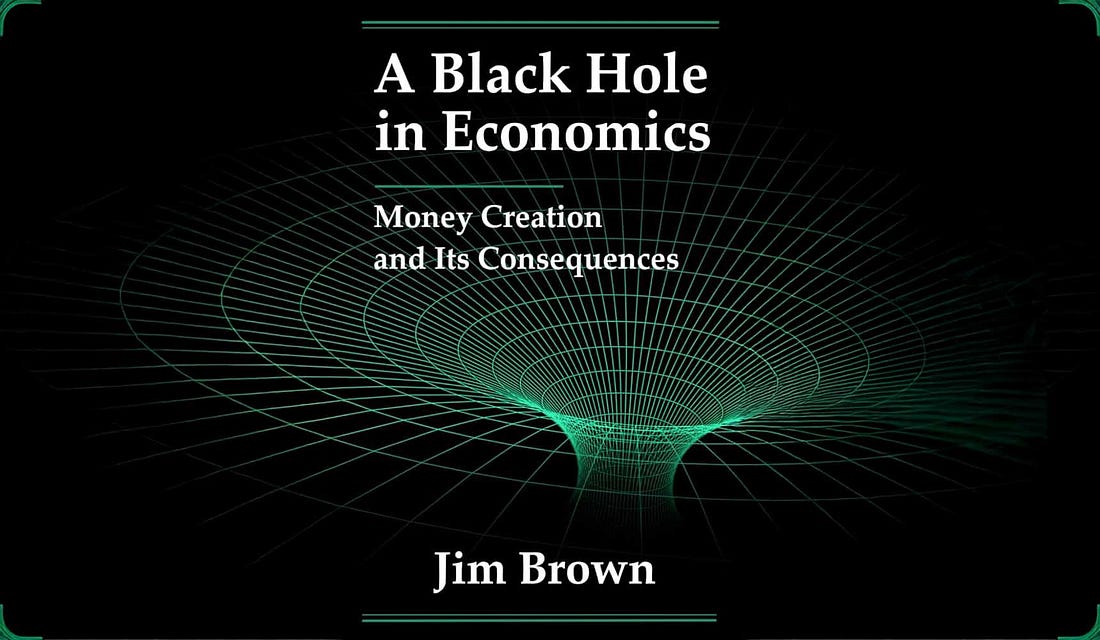
Image: Jonah Elkowitz / Shutterstock.com
Donald Trump’s Department of Government Efficiency (DOGE)—the vanguard of his stated effort to gut the federal workforce and agencies—claims to cut waste and rein in the reckless spending of the state. Trump’s supposed attempt to reform this by presidential decree is not genuine and will not ultimately succeed because it is not grounded in rational principles. Proper reform begins with a fundamental question: What is the purpose of government? The only rational answer is the protection of individual rights. But Trump’s policies neither respect that purpose nor follow lawful processes designed to uphold it. Instead, they disregard the rule of law—and in doing so, they violate the very rights government exists to protect.
The question here is not whether the federal government has abdicated this proper function—it long since has—but whether reform through unprincipled, irrational decrees secures liberty or ensures chaos. Real, lasting reform requires reason, explanation, and a rights-protecting legal process (or the creation of one if it does not exist). In certain cases, it may be necessary to use tools such as executive orders, but this should always be done in pursuit of restoring the proper function of the legal system as quickly as possible. Otherwise, today’s victories can collapse into tomorrow’s reversals—and, even worse, set dangerous legal precedents. For example, on January 20, 2025, Trump issued an executive order renaming the Obama-era U.S. Digital Service as the DOGE Service and unilaterally installing teams within federal agencies to enforce his directives—bypassing congressional approval and oversight. This was no reform—it was the opening salvo in Trump’s campaign to rule by decree, not by reference to a proper conception of the rule of law.
To evaluate a reform effort such as DOGE, we must ask two questions: (1) Does it aim to secure individual rights? (2) Does it use or establish lawful, objective processes to ensure that those reforms endure? Trump’s initiative fails both tests. His goals are unprincipled, rooted in sycophantism and circus-like spectacle rather than justice. And his methods sidestep Congress and due process, not to restore the rule of law but to undermine it.
Trump’s administrations, both past and present, are a tempest of executive overreach, unfulfilled promises, and social-media grandstanding that undermine lasting reform. His 2020 Schedule F order, which aimed to strip tenure for federal government employees and to open the door to politically motivated firings, was swiftly reversed by Joe Biden, reemphasizing the fragility of policies enacted by fiat. In January 2025, Elon Musk claimed that DOGE could slash $2 trillion from the federal budget—nearly a third of 2023’s $6.8 trillion in spending—yet provided no actionable plan to do so. By April, Musk had scaled back this ambition to $150 billion—less than 10 percent of the original goal—admitting that $2 trillion was unrealistic.
For example, DOGE attempted to shut down the U.S. Agency for International Development (USAID), which is a fundamentally corrupt organization. But the attempt was blocked by a federal judge, who ruled that executive action alone could not dismantle a congressionally authorized agency without violating the separation of powers. The judge’s opinion stated, “Where Congress has prescribed the existence of USAID in statute pursuant to its legislative powers under Article I, the President’s Article II power to take care that the laws are faithfully executed does not provide authority for the unilateral, drastic actions taken to dismantle the agency.” Rep. Jamie Raskin echoed this point, criticizing DOGE’s effort as an “unlawful power grab.” DOGE’s erratic moves—cancelling contracts, accessing sensitive Treasury data, and laying off thousands, all without clear, evidence-based principles—embody not reform but a reckless spectacle that invites chaos and reversal. Indeed, DOGE’s own public “wall of receipts” was riddled with double-counted or outdated entries, including savings from programs that ended during the George W. Bush administration, further undermining DOGE’s credibility. After public scrutiny, DOGE removed more than a thousand entries—roughly 40 percent of the total—yet offered neither a clear public acknowledgment of the scale of the misreporting nor a revised total of claimed savings. The revisions further undermine DOGE’s credibility.
These cases (and many more) reflect a deeper, long-standing pattern of governing by impulse rather than according to rights-protecting principles. This volatility is deliberate, as evidenced by Trump’s use of rapid-fire executive actions and media tactics designed to overwhelm critics and evade accountability. As his former adviser Steve Bannon put it in 2017, the goal was to “flood the zone with shit”—a strategy meant to overwhelm critics with chaos and prevent meaningful scrutiny. For instance, reports indicate that Trump’s aides intentionally orchestrated a barrage of executive orders and public appearances to disorient opponents and hinder cohesive opposition. But such unpredictability, even if it were well-reasoned and well-intentioned, doesn’t lead to reform; it ensures failure, leaving any gains vulnerable to swift reversal by the next administration. Clear explanations respect people’s minds and add credibility; deliberately avoiding accountability and hiding from criticism detracts from the trustworthiness of the administration and invites failure.
There is a potentially more serious problem, too: The more often presidents use tools such as executive orders in ways that undermine the principles of a free society, the more likely it is that future presidents will do so. (Observe the catastrophic consequences of Franklin Delano Roosevelt’s unsurpassed deluge of executive orders—consequences that still are harming Americans today.)
Although proper political reform may be disruptive in some cases, it is not characterized by disruption but by the enduring protection of individual rights, the creation and/or maintenance of objective law, and fidelity to such law. Trump’s approach ensures that even his best proposals collapse under their own contradictions. Reform not rooted explicitly in the evidence-based principles of a free society can’t and won’t last.
The Rule of Law and the Price of Arbitrary Power
Federal spending soared to $6.75 trillion in 2024 (23.4 percent of GDP, well above the historic average of 20.3 percent), and a $1.8 trillion deficit pushed the national debt to 97 percent of GDP. (These numbers aren’t meaningless; they largely explain why your grocery bill has doubled or tripled since 2019, why your retirement portfolio likely is down by 20 percent or more, why some cars cost 50 percent more than they did ten years ago, etc.) America’s spending crisis is not merely a fiscal problem measured in trillions; it is a moral failure: a government evading responsibility and looting its citizens’ futures to serve politicians’ short-term interests. A government that spends beyond its means sacrifices the nation’s future freedom and prosperity—and vastly more so when the government spends vast amounts of money on rights-violating activities. What America needs is not argument over the size of government but widespread recognition of its proper role—the protection of individual rights—and rational, principled debate over how to restrict it, permanently and responsibly, to that role.
“MAGA” loyalists cast DOGE as a principled effort to restrain government, excusing its failures by framing any opposition as evidence of deep-state subversion; Trump, too, embraces this particular deep-state narrative. For instance, during his 2024 Conservative Political Action Conference speech, Trump declared his intention to “totally obliterate the deep state,” portraying entrenched federal agencies as adversaries of his administration. There is good evidence that drastic action is needed to reform the federal government into a more rights-respecting entity. But Trump represents a uniquely dangerous kind of counterfeit reformer; he names a legitimate problem, wraps himself in the language of the Founders, and then pursues actions that undermine both. Attempting to reform government without the clear, principled intention of protecting rights is futile—and dangerous. Indeed, it discredits the very ideals that many Trump loyalists claim to uphold. (Of course, such intention requires understanding what rights are; few, if any, politicians today appear to.)
Vivek Ramaswamy, former coleader of DOGE, has framed the initiative not merely as a push for efficiency but as a mechanism to purge the federal government of those who obstruct Trump’s agenda. He thanked Trump for putting him and Musk “in a position to start the mass deportations of millions of unelected federal bureaucrats out of the D.C. swamp.” The language is cartoonish, but it reflects a real ambition: to convert the civil service from a rights-protecting institution into a tool of ideological enforcement. That ambition is central to Trump’s reinstatement of Schedule F, which reclassifies tens of thousands of federal roles into at-will positions, making them easier to terminate. Indeed, the Heritage Foundation’s Project 2025 explicitly proposes using this power to install a “trusted cadre” of loyal staff across federal agencies. We’ve already witnessed the spectacle of Trump’s cabinet meetings, where officials engage in orchestrated praise, each vying to outdo the other in sycophantic admiration of the president’s leadership. Extending this culture of obsequiousness across the entire federal bureaucracy would prioritize loyalty to an individual over competence and adherence to rights-protecting principles, undermining the very foundation of a merit-based civil service.
Conservative activist Rod Martin echoes Ramaswamy’s sentiment, asserting, “Deep State bureaucrats have been living like KINGS off your money. But Elon’s Department of Government Efficiency (DOGE) just exposed BILLIONS in fraud! Now they’re draining the swamp!” These claims fuel rhetoric that dismisses critiques of DOGE’s methods as complicity with a corrupt system, straw-manning those who mount principled opposition to both Trump’s excesses and to the reckless, rights-violating government spending he claims to be combating.
When badly needed cuts are driven by tribalistic spectacle instead of adherence to rights-protecting principles, the result isn’t reform—it’s chaos, and that chaos becomes a gift to the opponents of limited government. Historically, when reductions in government services are implemented without a clear plan rooted firmly in a proper conception of government’s role, they create unpredictability and even poverty, which statists then exploit to advocate greater expansions of government power. A notable example is the United Kingdom’s “austerity measures” in the early 2010s. The government sought to reduce its spending through deep cuts to social services and local government budgets, but these changes were executed hastily and lacked broad legislative support and a structured transition plan. As a result, homelessness surged, food-bank reliance grew, and public backlash prompted later governments to increase spending and expand intervention. Rather than curbing government overreach, these unprincipled and hasty austerity measures led to increased dependence on state support, thereby entrenching the very welfare state they aimed to diminish. DOGE’s approach, as championed by Musk, Ramaswamy, and Martin, mirrors this risk, as its unverified savings claims and abrupt directives—such as the failed attempt to shut down USAID—have already sparked confusion and legal challenges, weakening DOGE’s credibility.
Some argue that we no longer live in a society in which principled, limited government can be restored through ordinary political channels—and that the crisis of statism now demands executive boldness, even if it means bypassing the law. In some extreme cases, this argument has merit. When all relevant legal channels have been corrupted or foreclosed, and the state becomes oppressive, extralegal action may become morally necessary. But such action must aim explicitly to restore objective law and the protection of individual rights—not to bypass them.
This is not what Trump is doing. His actions are not principled efforts to reestablish a rights-respecting legal order—they are arbitrary purges that elevate personal loyalty over justice and chaos over proper reform. Emergency powers, used as Trump is using them, do not correct nonobjective law—they entrench and perpetuate the very arbitrariness that principled reform must reject. The true test is not whether reform is legal or extralegal but whether it is grounded in the objective moral purpose of government: the protection of individual rights.
A striking historical example of how rights-violating methods of governance fuel tyranny is the Weimar Republic’s abuse of Article 48 of its constitution, which allowed the president to rule by emergency decree. Presumably meant for rare crises, it became a routine tool to bypass democratic processes. In 1933, Adolf Hitler exploited this precedent by persuading President Hindenburg to issue the Reichstag Fire Decree, violating rights and legalizing mass arrests. This led directly to the Enabling Act, which empowered Hitler to override the Weimar constitution’s core provisions and legislate without parliamentary approval—consolidating his dictatorship under a veneer of legality and neutering the constitution while keeping it nominally intact. What began as a “temporary necessity” ended in totalitarianism.
This danger is not confined to history. The same dynamic can play out whenever reforms are implemented contrary to the evidence-based principles of a free society. Poorly executed reductions in government services often create social disruption, which politicians then use as a rationale for even greater intervention. Instead of shrinking the state, such chaos becomes a pretext to entrench it further. Trump’s recklessness risks handing his opponents a ready-made excuse to expand the very bureaucracy that reformers seek to dismantle.
The lesson is clear: Reform that abandons proper principles in the name of expedience may win short-term victories, but it lays the groundwork for long-term disaster. To secure a free society, reform must be grounded in reason—patient but never passive. It must pursue lasting change through intellectual clarity and (whenever possible) through persuasion, not by emulating statists. Anything else guarantees not liberty but reactionary failure.
To prevent backlash, we must recognize that once the government seizes control of industries that properly must be private, it cannot simply extricate itself overnight. Improper government agencies must be wound down in a deliberate, structured way that minimizes chaos and denies statists any opportunity to exploit the transition. Reform must be designed such that once these agencies are dismantled, they stay dismantled. Otherwise, the long-term result will not be a leaner state—it will be an even more bloated and dysfunctional one.
A lack of such planned and structured reform will lead to greater inefficiency, more uncertainty for businesses, and a self-perpetuating cycle in which bureaucrats grow more entrenched with each swing of the wrecking ball. If Trump truly wanted to permanently limit government, he would work with Congress to pass structural reforms that could withstand political shifts. Instead, his reliance on executive orders guarantees failure, ensuring that virtually every move he makes will be wiped away soon after he leaves office.
Separation of Powers and the Need for Congress
The Constitution vests Congress, not the president, with the authority to create, modify, and dismantle federal agencies. Trump’s push to dismantle bureaucracies via executive action alone—as DOGE demonstrates—likely is unconstitutional. In 2023, his team suggested that they should attempt to dissolve departments such as the Department of Education without legislative backing, a move courts would likely halt, as they did parts of Trump’s 2017 travel ban. From the Supreme Court curbing Truman’s steel seizure to recent checks on the Deferred Action for Childhood Arrivals program, judicial precedent demands proper constitutional grounding for the use of executive orders and similar tools. In the case of DOGE, what is presented as administrative streamlining is, in practice, a presidential power grab.
In the American system, institutional stability isn’t meant to perpetuate bureaucracy—it’s what makes lasting change possible. Without checks and balances, Trump’s gains are inherently unstable, as Biden’s swift reversal of Schedule F shows. Real reform in the United States must go through Congress, where policies are debated, refined, and enacted with broad support. Yet Trump’s allies, while decrying bureaucratic bloat, embrace the instability his actions cause—ensuring that any “reform” collapses as quickly as it was imposed.
The Moral Case: Reform or Wreckage?
Eliminating government waste is vital, but it must be done using reason and for the purpose of protecting rights, not as a way of enacting vengeance. Trump’s approach—prioritizing loyalty over competence, as seen in his past pressure on officials such as James Comey—suggests a purge, not proper reform. Cutting agencies without first ensuring that their roles are obsolete or well-primed for transfer back to the private sector isn’t efficient—it’s disruption for the sake of political showboating.
Consider air traffic control: In 2022, air traffic controller staffing shortages, especially acute at high-volume facilities such as New York TRACON, which operated at just 54 percent of its staffing target, contributed significantly to widespread flight delays, with more than 170 “staffing trigger” incidents in that facility alone directly forcing reductions in operations. Abrupt mass layoffs or defunding of such agencies—absent a rational transition—only exacerbates such problems, endangering both safety and productivity.
A dramatically better model for reform is being demonstrated by Argentinian president Javier Milei, who also battles state excess. Facing triple-digit inflation, a collapsing peso, and an entrenched bureaucracy, Milei implemented sweeping economic reforms using both executive decrees and the legislative process, including passage of a comprehensive 2023 omnibus bill that slashed subsidies and regulations as part of his clearly explained pro-market vision. Crucially, his binding executive orders were later ratified by the legislature, giving them lasting legal force—in sharp contrast to Trump’s unstable, fiat-driven approach.
Displaying a deep intellectual commitment to limited government, Milei draws from Austrian economists and thinkers such as Ludwig von Mises, whose Human Action he described as a “true revolution” in his thinking. Though also a showman who revels in provocation, he is an intellectual giant compared to Trump, grounding his reforms in coherent theory rather than impulse. And unlike Trump, Milei has delivered real results. Argentina’s monthly inflation, which had soared to 25 percent in late 2023, fell to 2.4 percent by February 2025—the lowest in four years. His administration posted the country’s first fiscal surplus in more than a decade, all without triggering the collapse that many critics forecasted. Milei has negotiated durable cuts and navigated public protests, such as those over pension reductions, with a strategy grounded in principles, not tantrums.
Despite his severely austere approach to government spending, Milei retains substantial public support, with approval ratings around 43 percent—an impressive number for a president slashing subsidies and public-sector privileges. It signals that the Argentine public, at least for now, is willing to reward rationally principled, coherent reform. Most important of all, Milei has achieved these gains without a congressional majority—responding to mass protests with calm determination and a consistent economic vision. He proves that lawful, disciplined reform grounded in rational principles can shrink the state—even under pressure.
Lawful Change or Fleeting Fiat?
Trump’s DOGE initiative is not grounded in principle but in personal loyalty, spectacle, and force. His actions invert the proper order of reform, sacrificing individual rights to whim and lawful process to expedience. By contrast, Javier Milei demonstrates that disciplined reason—rooted in liberty—can achieve lasting reform even under pressure. In a free society, it is principle that defines purpose, and lawfulness that gives that purpose endurance. Reformers today face a clear choice: uphold the moral foundation of constitutional government or surrender to the unstable theatrics of unchecked power.
This article appears in the Summer 2025 issue of The Objective Standard.
Adam Stone, “Trump Vows to ‘Dismantle Federal Bureaucracy’ with New, Musk-Led Commission,” Government Executive, November 12, 2024, https://www.govexec.com/management/2024/11/trump-vows-dismantle-federal-bureaucracy-and-restructure-agencies-new-musk-led-commission/400998/. ↑
Madeleine Ngo and Theodore Schleifer, “How Trump’s Department of Government Efficiency Will Work,” New York Times, January 21, 2025, https://www.nytimes.com/2025/01/21/us/politics/doge-government-efficiency-trump-musk.html. ↑
Michael C. Bender, Madeleine Ngo, and Theodore Schleifer, “Musk Plan for Retooling Government Takes Shape, but Big Questions Loom,” New York Times, January 24, 2025, https://www.nytimes.com/2025/01/24/us/politics/musk-doge-government-overhaul.html. ↑
Eleanor Pringle, “Elon Musk Drastically Drops DOGE Savings Goal from $2 Trillion to $150 Billion per Year,” Fortune, April 11, 2025, https://fortune.com/2025/04/11/elon-musk-drastically-drops-doge-savings-goal-2-trillion-150-billion-year/; Chris Morris, “Why Elon Musk’s DOGE Savings Goal Fell from $2 Trillion to a Much Smaller Figure,” Inc., April 12, 2025, https://www.inc.com/chris-morris/why-elon-musk-doge-savings-goal-fell-2-trillion-to-150-billion/91175183. ↑
Steve Thompson, “Maryland Judge Orders DOGE to Stop Efforts to Dismantle USAID,” Washington Post, March 18, 2025, https://www.washingtonpost.com/dc-md-va/2025/03/18/maryland-judge-blocks-doge/. ↑
Theodore D. Chuang, “Memorandum Opinion,” J. Does 1-26 v. Musk, No. 8:25-cv-00409-TDC (D. Md. Mar. 18, 2025), https://www.courtlistener.com/docket/69636722/73/does-1-26-v-musk/; Jonathan Landay and Patricia Zengerle, “US Judge Finds Musk’s USAID Cuts Likely Unconstitutional, Blocks Him from Making More Cuts,” Reuters, March 18, 2025, https://www.reuters.com/world/us/us-judge-bars-musk-doge-further-efforts-shut-down-usaid-2025-03-18/. ↑
Avi Asher-Schapiro, Andy Kroll, and Christopher Bing, “DOGE’s Millions: As Musk and Trump Gut Government, Their Ax-Cutting Agency Gets Cash Infusion,” ProPublica, February 20, 2025, https://www.propublica.org/article/doge-trump-musk-funding-foia-congress-transparency. ↑
Jonathan Swan et al., “A Subdued Musk Backs Away from Washington, But His Project Remains,” New York Times, April 23, 2025, https://www.nytimes.com/2025/04/23/us/politics/elon-musk-doge-trump.html. ↑
Jonathan Rauch et al., “A Subdued Musk Backs Away from Washington, but His Project Remains,” New Republic, April 23, 2025, https://www.nytimes.com/2025/04/23/us/politics/elon-musk-doge-trump.html. ↑
Luke Broadwater, “Trump’s ‘Flood the Zone’ Strategy Leaves Opponents Gasping in Outrage,” New York Times, January 28, 2025, https://www.nytimes.com/2025/01/28/us/politics/trump-policy-blitz.html. ↑
Deirdre Schifeling, “The Strategy behind Trump’s Policy Blitz,” Yahoo News, February 2025, https://www.yahoo.com/news/strategic-chaos-trump-first-days-113000014.html. ↑
Daniel J. Mitchell, “FDR’s ‘New Deal’ Worsened and Prolonged the Great Depression,” Foundation for Economic Education, August 8, 2020, https://fee.org/articles/fdr-s-new-deal-worsened-and-prolonged-the-great-depression. ↑
Congressional Budget Office, “Monthly Budget Review: Summary for Fiscal Year 2024,” November 7, 2024, https://www.cbo.gov/publication/60843; Tax Foundation, “Government Revenues, Outlays, and Deficit as a Share of GDP,” accessed March 27, 2025, https://taxfoundation.org/data/all/federal/government-revenues-outlays-deficit-share-gdp/; Federal Reserve Bank of St. Louis, “Federal Debt Held by the Public as Percent of Gross Domestic Product (FYGFGDQ188S),” Federal Reserve Economic Data, accessed March 27, 2025, https://fred.stlouisfed.org/series/FYGFGDQ188S. ↑
Elon Musk, interview with Larry Kudlow, Fox Business, February 15, 2025, https://www.foxbusiness.com/video/6328517299112. ↑
Donald J. Trump, speech at the Conservative Political Action Conference (CPAC), National Harbor, MD, February 24, 2024, C-SPAN, https://www.c-span.org/program/campaign-2024/former-president-trump-speaks-at-cpac/638771. ↑
Vivek Ramaswamy, speech at America First Policy Institute gala, quoted in Andrew Solender, “Ramaswamy Says DOGE Will Lead to ‘Mass Deportations’ of Bureaucrats,” Axios, November 21, 2024, https://www.axios.com/2024/11/21/ramaswamy-doge-mass-deportations-bureaucrats. ↑
“What Is Schedule F? Trump’s Plan to Fire 50,000 Bureaucrats,” Newsweek, April 18, 2025, https://www.newsweek.com/what-schedule-f-trumps-move-fire-50k-federal-workers-more-easily-2061651. ↑
Paul Dans and Spencer Chretien, Mandate for Leadership: The Conservative Promise (Washington, DC: Heritage Foundation, 2023), https://www.project2025.org/policy/. ↑
Rod Martin (@RodDMartin), X, April 16, 2025, https://x.com/RodDMartin. ↑
“‘Austerity’ in Public Services: Lessons from the 2010s,” Institute for Government, November 15, 2022, https://www.instituteforgovernment.org.uk/publication/report/austerity-public-services-lessons-2010s. ↑
“Article 48,” Holocaust Encyclopedia, United States Holocaust Memorial Museum, accessed March 27, 2025, https://encyclopedia.ushmm.org/content/en/article/article-48. ↑
“Reichstag Fire Decree,” Holocaust Encyclopedia, United States Holocaust Memorial Museum, accessed March 27, 2025, https://encyclopedia.ushmm.org/content/en/article/reichstag-fire-decree. ↑
“The Enabling Act,” Holocaust Encyclopedia, United States Holocaust Memorial Museum, accessed March 27, 2025, https://encyclopedia.ushmm.org/content/en/article/the-enabling-act. ↑
Trump’s 2023 Education Department proposal came from campaign talks (e.g., at a June 2023 Faith & Freedom Coalition event). Courts struck down parts of Executive Order 13769 (travel ban) in 2017. See Hawaii v. Trump, 585 U.S. 667 (2018), https://www.supremecourt.gov/opinions/17pdf/17-965_h315.pdf. ↑
Youngstown Sheet & Tube Co. v. Sawyer, 343 U.S. 579 (1952), https://www.supremecourt.gov/opinions/boundvolumes/343bv.pdf; Dep’t of Homeland Security v. Regents of Univ. of Cal., 591 U.S. 1 (2020), https://www.supremecourt.gov/opinions/19pdf/18-587_5ifl.pdf. ↑
“Report on the Investigation into Russian Interference in the 2016 Presidential Election,” vol. 2, p. 34, April 2019, https://www.justice.gov/archives/sco/file/1373816/download. ↑
U.S. Department of Transportation, Office of Inspector General, FAA Faces Controller Staffing Challenges as Air Traffic Operations Return to Pre-Pandemic Levels at Critical Facilities, Report no. AV2023033 (June 21, 2023), https://www.oig.dot.gov/sites/default/files/FAA%20Controller%20Staffing%20and%20Training%20at%20Critical%20Facilities%20Final%20Report-06-21-23.pdf. ↑
Gabriel Powell, “Deregulation in Argentina: Milei Takes a Deep Chainsaw to Bureaucracy and Red Tape,” Cato Institute, January 26, 2024, https://www.cato.org/blog/deregulation-argentina-milei-takes-deep-chainsaw-bureaucracy-red-tape; “Argentina’s Congress Approves Milei’s Overhaul Bill,” Reuters, June 28, 2023, https://www.reuters.com/world/americas/argentinas-congress-approves-mileis-overhaul-bill-2023-06-28/. ↑
Ryan McMaken, “How Javier Milei Explains His Economic Philosophy,” Foundation for Economic Education (FEE), August 10, 2023, fee.org/articles/how-javier-milei-explains-his-economic-philosophy/. ↑
“Argentina’s Monthly Inflation Slows to 2.4% in February, the Lowest in 4 Years,” Buenos Aires Times, March 15, 2025, https://www.batimes.com.ar/news/economy/argentinas-monthly-inflation-slows-to-24-in-february-the-lowest-in-4-years.phtml. ↑
“Argentina Posts First Monthly Budget Surplus in 12 Years,” Reuters, January 23, 2025, https://www.reuters.com/world/americas/argentina-posts-first-monthly-budget-surplus-12-years-2025-01-23/; Uki Goñi, “Argentina’s Radical President Javier Milei Slashes Spending—and So Far, It’s Working,” The Guardian, February 25, 2025, https://www.theguardian.com/world/2025/feb/25/javier-milei-argentina-austerity-reform-economy. ↑
Gabriel Powell, “Javier Milei’s Legitimacy and the Libertarian Policy Agenda,” Cato Institute, December 28, 2023, www.cato.org/blog/javier-milei-legitimacy-libertarian-policy. ↑
“Javier Milei Retains Strong Support Amid Austerity Measures,” Clarín, March 10, 2025, https://www.clarin.com/politica/milei-retiene-apoyo-popular-ajuste_0_Xk5ZsLFs.html. ↑










